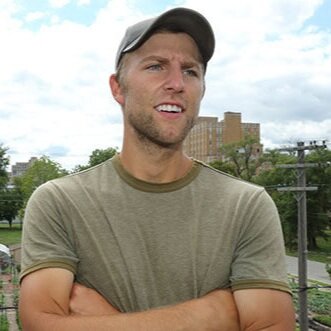12 Community-Based Health Tips for Navigating the COVID-19 Pandemic
As the COVID-19 pandemic continues to impact communities across the country, it can be difficult to make sense of all the health and safety information being shared on the news, social media, and other sources. The rising infection numbers come at an even more concerning time as we all preparing for the annual cold/flu season and balance the recent results of the 2020 Presidential election. So, what information can we trust and what steps should we all be taking to protect ourselves and our communities during these challenging times?
To help answer this question, and many more, our final Community Conversations event of 2020 featured a panel discussion lead by local and national health and wellness experts. The talk lifted up tangible strategies and tools each of us can use to help stay healthy and engaged, even in today’s rapidly changing social climate.
Missed the live session? Watch the recording below and check out the tips to learn how you can best care for yourself and others this season!
PANELISTS
Caring for Our Physical Health
From wearing a mask to getting a seasonal flu shot, there are many ways to protect your own physical health and the health of others amid the COVID-19 pandemic and cold/flu season. Dr. Paul Thomas shared a helpful list of steps we all can take to stay protected:
Practice appropriate COVID-19 safety procedures like wearing a mask, physical distancing, and washing your hands.
Schedule an appointment to get a flu shot at your doctor's office, clinic, or local pharmacy (like CVS or Walgreens).
Contact your doctor's office to learn more about their current appointment process or schedule a virtual care appointment to ensure you get the care you need.
Bonus tip: If you are experiencing any COVID-19-related symptoms or have come in contact with someone who is, get tested using the City of Detroit's free drive-thu testing program. Remember: just because you do not show symptoms, does not mean you cannot spread the virus!
Adopting a Holistic Approach to Mental and Physical Health
As we head into the winter season, the cold weather, shorter days, and continued presence of COVID-19 can have a large impact on our mental, physical, and spiritual wellbeing. Luckily, Dr. Phyllis gave us some items to add to our "mental health toolkits."
Shift your thoughts toward planning for 2021. What seeds (goals) should you plant today so they will flourish next year? What weeds do you need to pull in order to make space?
Check-in with yourself and see how you're feeling. Try to recognize the "what" you're feeling along with the "why."
Allow stress to move through you and not get stuck inside of you.
Bonus tip: In addition to impacting your physical health, your diet can have a huge impact on your overall mental wellbeing. Be deliberate with your food choices and make sure to stay hydrated!
Visit Dr. Phyllis' website to explore even more resources to help care for your mental and emotional health!
Accessing Healthy and Community Grown Food
Maintaining a balanced and healthy diet is key to your overall wellbeing, especially during cold and flu season and the COVID-19 pandemic. Tyson Gersh of theMichigan Urban Farming Initiative outlined some great tips for eating well and helping others access healthy options.
Participate in food education programs that can teach you about healthy food options and how they are grown/produced.
Volunteer with your local community garden/urban farm (like MUFI) to help produce/distribute food to those in need.
Subscribe to programs like the Detroit People's Food Co-Op that support food sustainability in communities.
Bonus Tip:Studies are showing that a Vitamin D deficiency could be correlated with an increased risk of contracting COVID-19. Help give your Vitamin D levels a boost (even while staying inside) by eating fresh salmon, milk, cereal, or taking a supplement. Also, check out this blog post from Dr. Paul on the role of Vitamin C!
Navigating Community-based Healthcare Resources
A number of community-based organizations are evolving their strategies to meet the changing needs of neighborhoods during these challenging times. Crystal Head of the Sinai-Grace Guild Community Development Corporation shared some ways her organization is supporting residents and outlined steps we all can take to in our communities:
Connect with your local community development corporation or block club to learn about healthcare and support options available in your area.
Engage (virtually) with the elders in your family and community to help them feel less isolated.
Explore Community Health Worker certification programs in your area to learn how you can help connect residents with additional health and wellness resources.
Bonus Tip: Find fun and manageable ways to help elders in your family stay active and engaged. Start with small goals (ex. walking one lap around their house) and build up to larger daily activities to help keep them positive and healthy.
We appreciate all of our panelists for the insight they shared and for all of the work they do to keep their communities safe and healthy. Subscribe to our newsletter to stay updated on the Community Conversations series!





